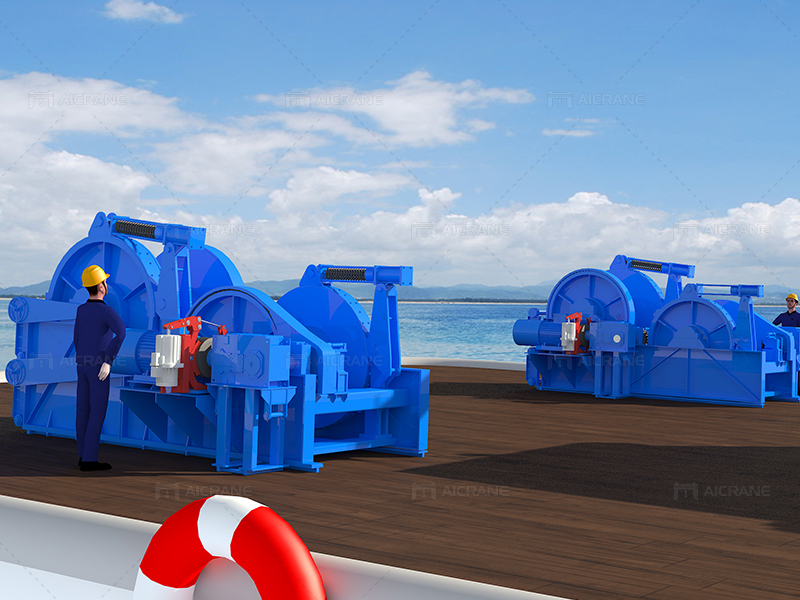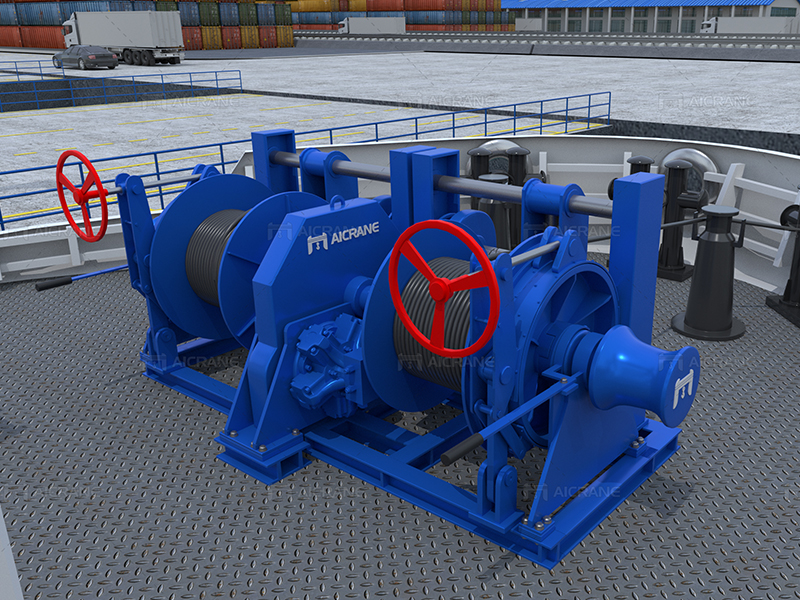Mooring winches play a crucial role in the maritime industry, providing the essential function of securing ships and vessels in ports and harbors. As technology continues to advance, the choice between electric and hydraulic mooring winches has become a pivotal decision for shipowners and operators. This article delves into the comparison of electric and hydraulic mooring winches, exploring their key features, advantages, and considerations to help maritime professionals make informed decisions.

Power Source:
Electric Mooring Winches: Electric mooring winches are powered by electricity, either from the ship’s electrical system or an external power source. This type of winch is known for its simplicity and ease of integration into the vessel’s existing electrical infrastructure.
Hydraulic Mooring Winches: Hydraulic mooring winches, on the other hand, rely on hydraulic power generated by pumps connected to the vessel’s main engine or a dedicated hydraulic power unit. This system offers high power density and is often favored for heavy-duty applications.
Efficiency and Performance:
Electric Mooring Winches: Electric winches are praised for their efficiency and precise control. They offer variable speed options and are capable of delivering consistent power throughout the operation. Electric winches are particularly suitable for applications that require fine-tuned control, making them ideal for precise mooring maneuvers.
Hydraulic Mooring Winches: Hydraulic winches are known for their high power output, making them suitable for handling heavy loads. The hydraulic system provides excellent torque and can maintain constant pulling force, making these winches well-suited for demanding mooring tasks.
Space and Weight Considerations:
Electric Mooring Winches: Electric winches are generally more compact and lightweight compared to their hydraulic counterparts. This can be advantageous for vessels where space and weight considerations are critical. The compact design of electric winches allows for easier installation in limited spaces.
Hydraulic Mooring Winches: Hydraulic winches, while powerful, tend to be larger and heavier due to the hydraulic power unit and associated components. This can impact the overall weight distribution of the vessel and may require more planning in terms of installation and placement.

Maintenance and Reliability:
Electric Mooring Winches: Electric winches are often praised for their low maintenance requirements. They have fewer moving parts, reducing the likelihood of mechanical failures. Routine inspections and electrical system checks are typically sufficient to ensure reliable operation.
Hydraulic Mooring Winches: Hydraulic winches may require more regular maintenance due to the complexity of the hydraulic system. Fluid levels, hose integrity, and pump conditions need to be closely monitored. However, when properly maintained, hydraulic mooring winches are known for their durability and robustness.
Cost Considerations:
Electric Mooring Winches: Electric winches are generally more cost-effective in terms of initial investment. The simplicity of the electrical system and widespread availability of electrical components contribute to a lower upfront cost.
Hydraulic Mooring Winches: Hydraulic winches may have a higher initial cost due to the complexity of the hydraulic system and associated components. However, they are often considered a long-term investment due to their durability and ability to handle heavy-duty applications.
Environmental Impact:
Electric Mooring Winches: Electric winches are considered more environmentally friendly, especially if the electricity is sourced from renewable energy. They produce fewer emissions and contribute to the overall sustainability of the vessel.
Hydraulic Mooring Winches: Hydraulic winches may have a higher environmental impact due to the hydraulic fluid used in the system. Proper disposal and management of hydraulic fluids are essential to mitigate environmental concerns.
Conclusion:
The choice between electric and hydraulic mooring winches depends on various factors, including the specific needs of the vessel, available space, budget considerations, and environmental goals. Both types of mooring winches offer unique advantages, and the decision should be based on a thorough assessment of the operational requirements and preferences of the maritime professionals involved. As technology continues to advance, future innovations may further influence the choice between electric and hydraulic mooring winches in the ever-evolving maritime industry.
